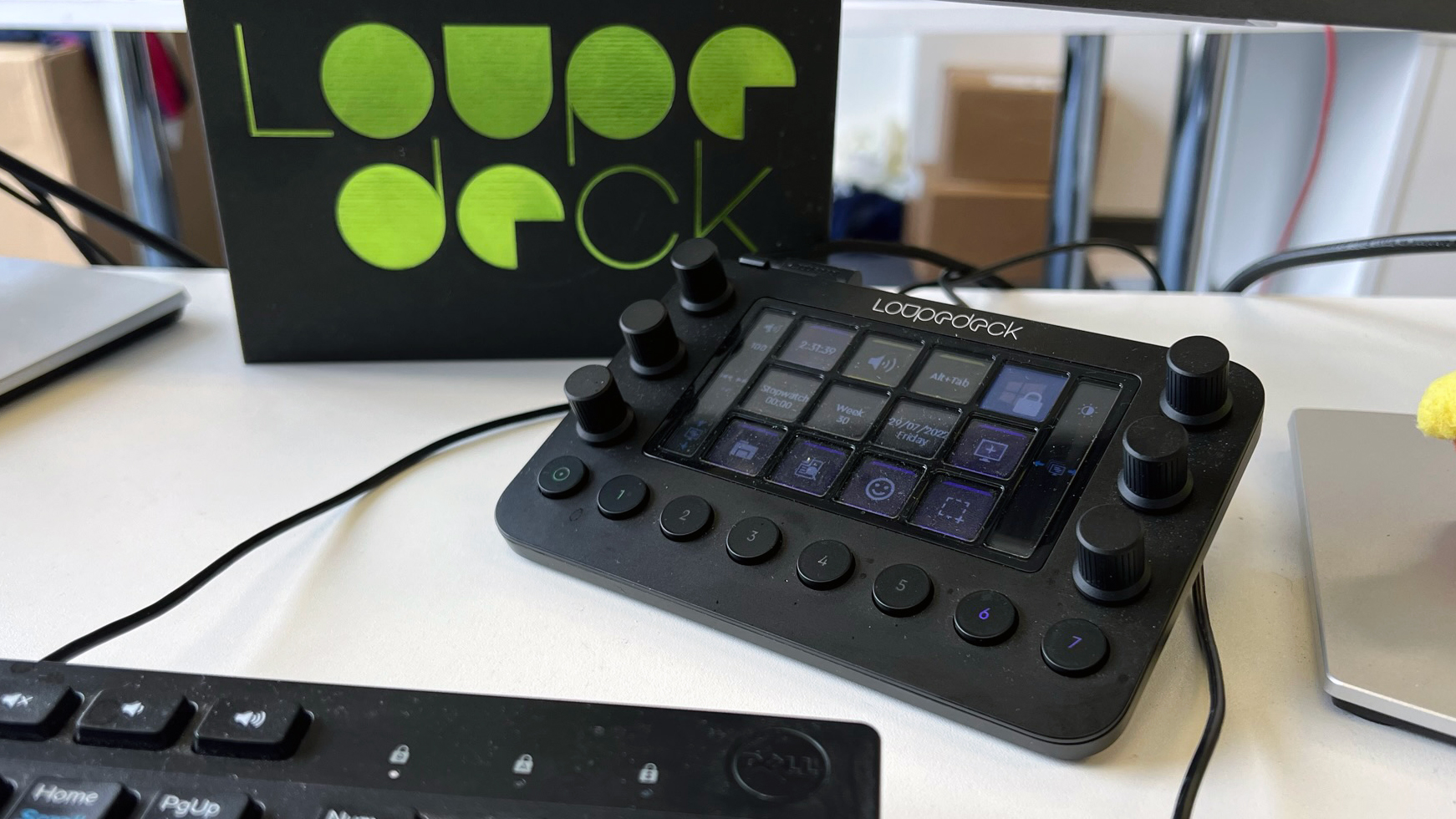GamesRadar+ Verdict
The Loupedeck Live is a good work companion offerings loads of customisation potential, inputs, and a solid app, but streamers might find it less useful.
Pros
- +
Loads of customisation potential
- +
Variety of input options
- +
Good native app support
Cons
- -
Touch-sensitive buttons require precision
- -
Flimsy stand
Why you can trust GamesRadar+
For the longest time, Elgato’s excellent Stream Deck pretty much lived alone in the streaming for gamers and creators markets for those looking to simplify their workflows. Now Loupedeck is looking to disrupt that dominance with the Loupedeck Live, their answer to all of your creative productivity needs.
At $269/£229 it’s a more expensive option but has a few extra tricks up its sleeve to fight for the crown of a must-have gadget.
Design & features
Out of the box, the Loupedeck Live is a tale of two halves - or two sides to be more specific. It’s a bit like a theatre or film set, from the front you see a beautiful, magical castle without a leaf out of place, but around the back, it’s three guys in jeans holding it all together with scaffolding.
The front of the Loupedeck Live is excellent and squeezes a lot into a surprisingly compact package. The matte metal faceplate and dials are a premium touch and every action brings a satisfying tactile response. The stepped dials have a pleasant rumble as they rotate and physical button presses come with a perfect gentle click.
You’re spoiled for choice when it comes to inputs. Across the face, you’ll find six stepped dials that also act as buttons, eight physical buttons, and 12 mini touchscreens. The variety of input options is surprisingly useful and offers more flexibility in tasks than buttons alone. While things like changing volume levels or brush sizes could be achieved in steps with a button push, twisting a dial feels a far more elegant solution than mashing away at a key.
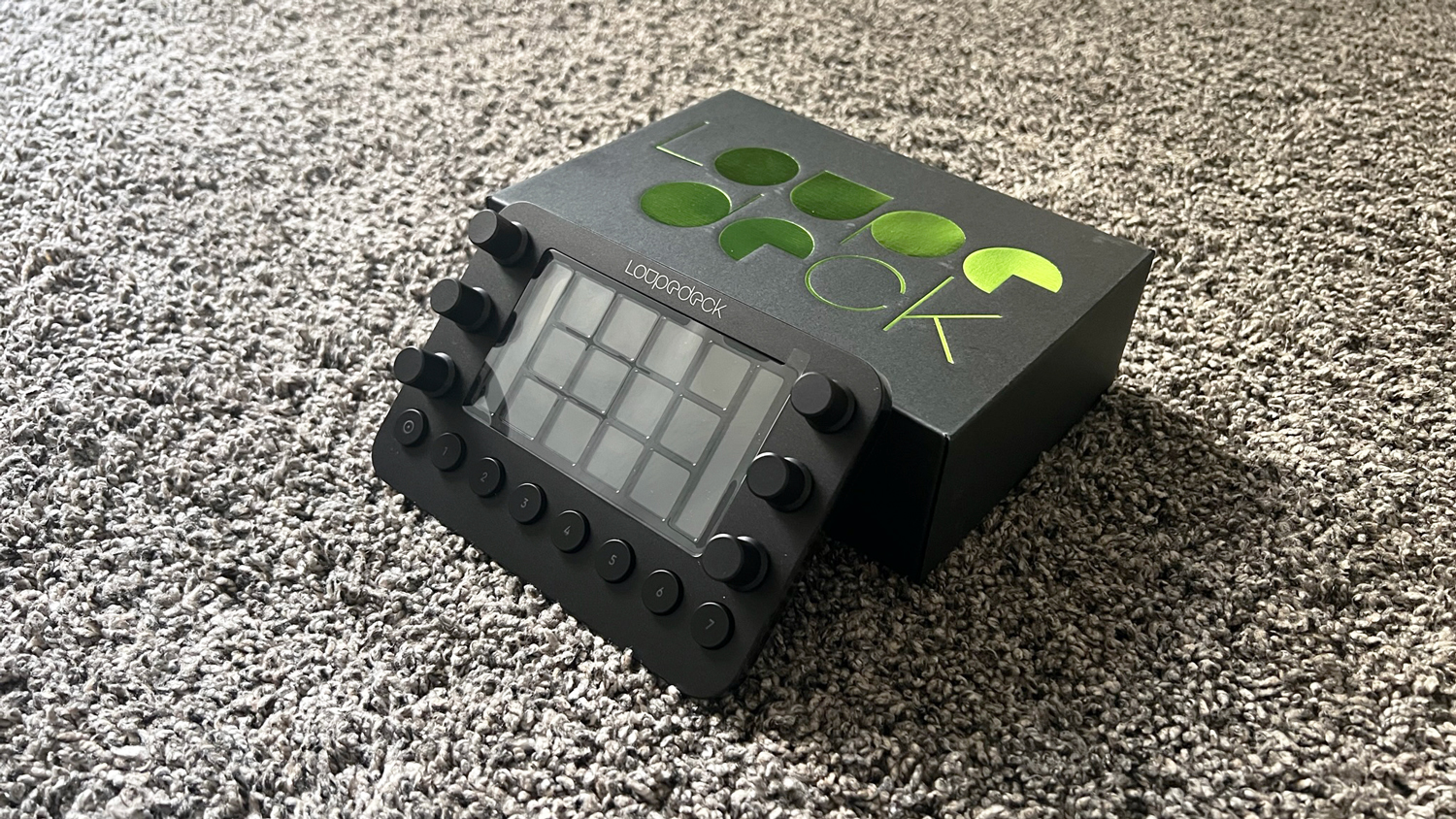
The touchscreens are sharp and colourful with a punchy backlight. They’re almost exactly the same size as the buttons on an Elgato Stream Deck but do seem slightly higher resolution. Whether or not this is a side effect of the Stream Deck’s screens being covered by a slab of clear resin though it’s hard to tell.
Looking behind the walls of the magic castle though and it’s a slightly disappointing story. While the front is high-end metal, the back is plastic with a hollow feel which is at odds with the $269/£229 price point. The stand is a rather flimsy feeling plastic bar that awkwardly clips into holes on the back. This means there’s just one angle setting possible and unlike the four large rubber feet on the unit itself, there’s only a tiny amount of rubber strip on each corner which leaves it prone to sliding about your desktop.
It’s more an annoyance than a dealbreaker and I’m sure a lot of users will go without the stand entirely but it’s a really inelegant solution to a pretty basic problem and feels like an afterthought. The same could be said of the included USB cable, it’s a nice braided cable but it’s just too short and this seriously limited the choices I had of where to sit it on my desk.
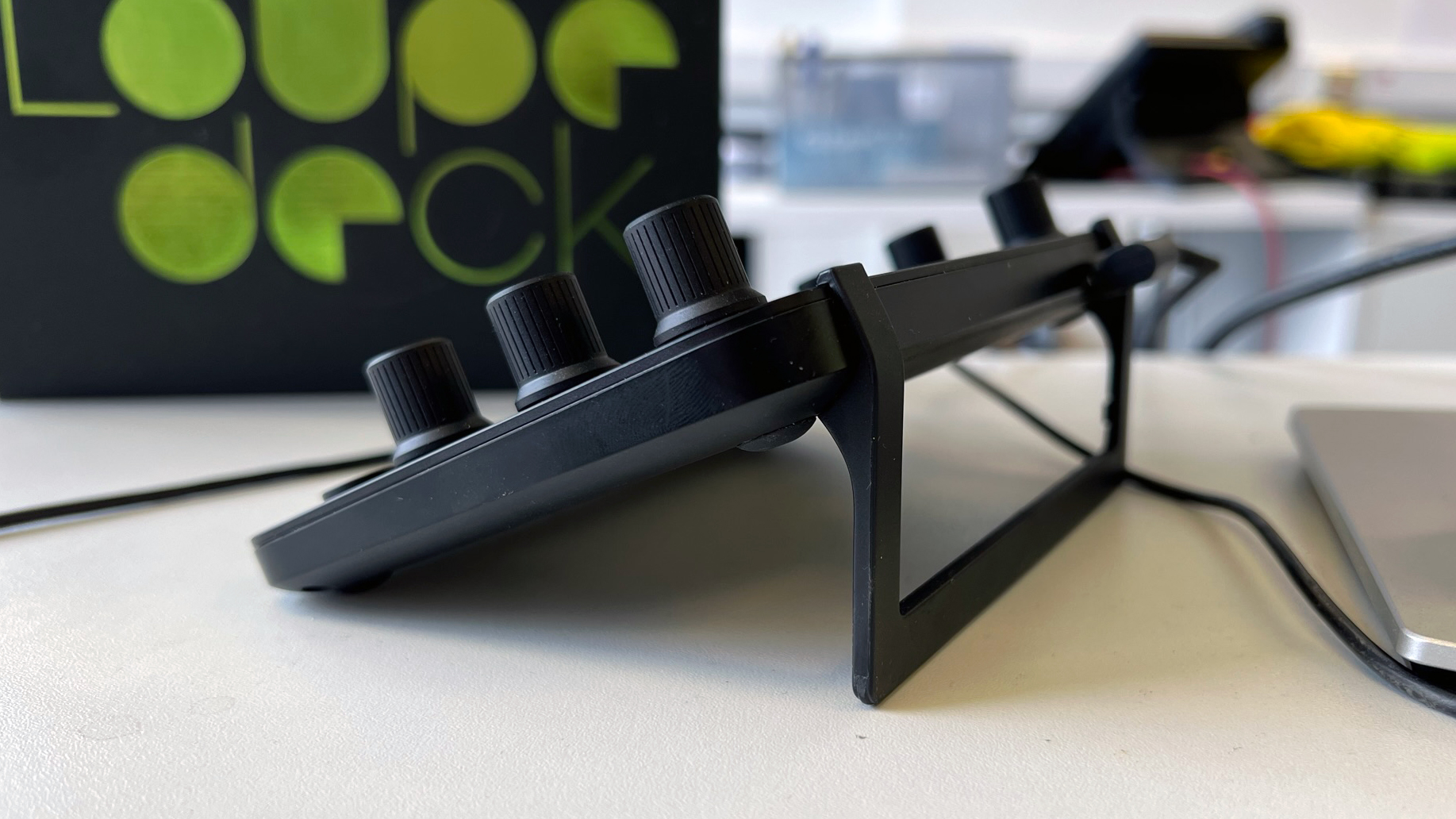
Performance
When it comes to actually using the Loupedeck Live it’s a slightly peculiar experience. I’ve made the most of an Elgato Stream Deck almost daily for live streaming over the last five years and yet found the transition to the Loupedeck a tricky one to make.
On paper they achieve the same thing, putting a plethora of shortcuts and actions at your fingertips ready to be fired off at a moment’s notice. The difference here though is that the Loupedeck Live’s primary buttons aren’t actually buttons. While using a grid of touch screens (that actually form one giant touch screen for swipe gestures, which is nifty) feels like a more modern solution, the result is actually trickier to use. There’s no margin for error, no chance to feel your way to your goal before triggering an action. Miss your mark with a button press and instead of changing scene you’ve fired off an air horn sound effect.
This meant I didn’t trust myself to use the Loupedeck for quick actions mid-stream and instead found more use for the Loupedeck Live while I was, ironically, not live.
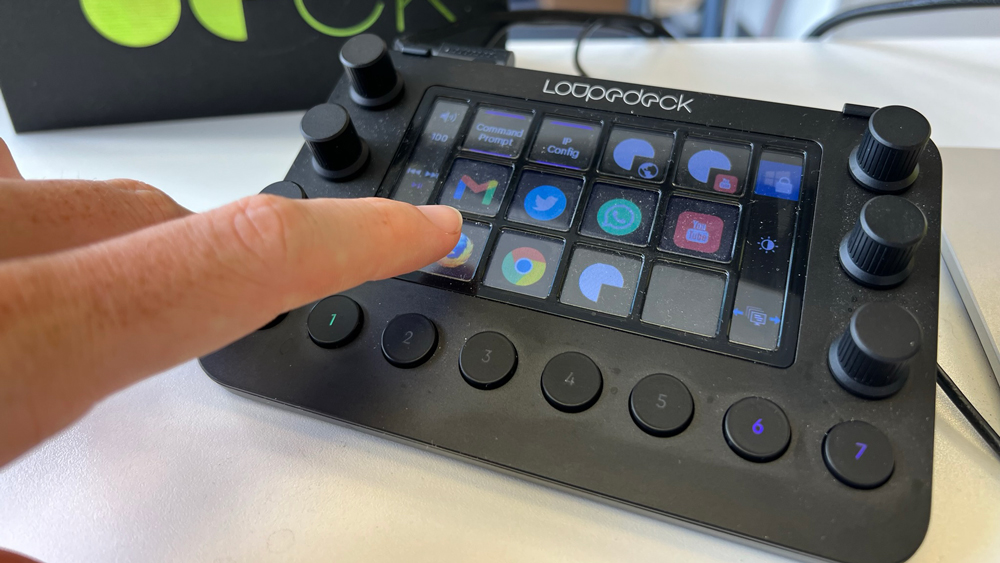
As a productivity tool on my desk at work, however, the Loupedeck Live started to deliver. Upon initial setup, you’re gifted default pages of shortcuts for launching common apps like Edge and Discord, media control, and common windows shortcuts which are a great starting point. If you want to begin tailoring things, the interface is simple to use and there’s a decent amount of apps with full support, including the Adobe Suite which is still notably absent from Elgato’s app store.
Opening Adobe Photoshop the Loupedeck automatically switched to a Photoshop-specific profile (again, preloaded) with a number of pages of common shortcuts. There’s a definite habitual learning curve for this to be quicker than traditional shortcuts or simply mousing over to change function, however. I found myself having to actively think to use the Loupedeck to swap tools, though changing brush sizes with a dial is a very neat way to work (and strangely satisfying too).
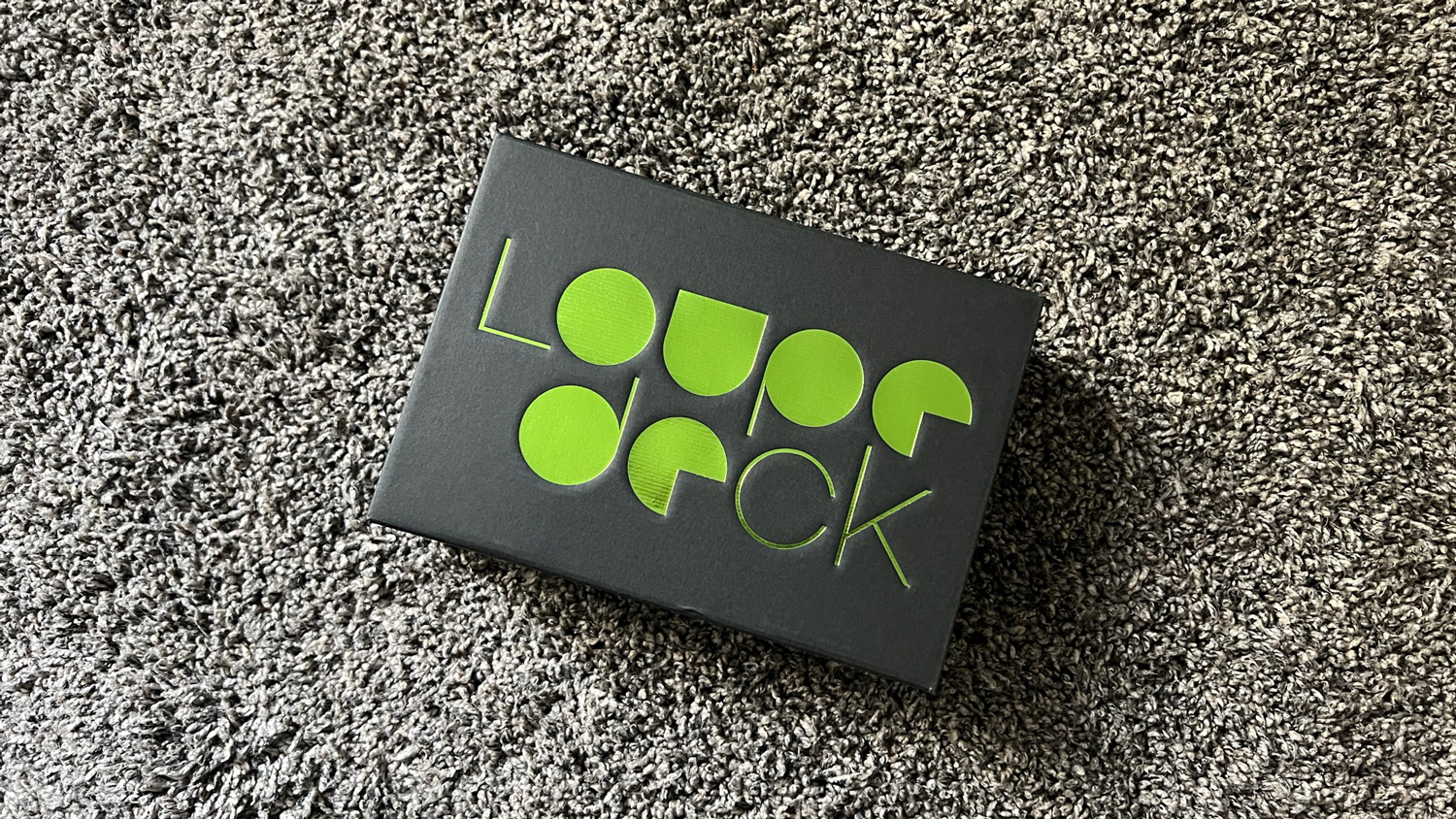
Overall - Should you buy it?
The Loupedeck Live is always going to be as good as what you make it. All of the build quality and functionality are there but its value will waiver depending on how well each individual can work it into their setup.
If you’re a heavy Adobe Suite user or like a more visual representation of shortcuts, the Loupedeck Live will no doubt make your life easier. If you’re a live streamer looking for a sidekick, however, the Elgato Stream Deck is probably still the better choice. All in all, it's a good work companion but less useful for streamers.
How we tested the Loupedeck Live
I added the Loupedeck Live to my desk at both home and work and tried to integrate it into my life where possible over the course of a few weeks. At home, I used it to control various elements of my Twitch stream, both in setup and for changing scenes and triggering sound effects while live. At work, I attempted to find ways to improve workflows and achieve common tasks.
Complete your streaming setup with one of the best microphones for streaming, best capture cards, and the best webcams.
Alex is a streamer who has been creating gaming content for over a decade, streaming on Twitch regularly across the last five years. With a degree in film and a background in sports media, you'll find him jumping between 60,000 seat stadiums and his Animal Crossing island (where he's growing pears, in case you were wondering).
